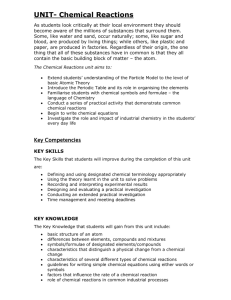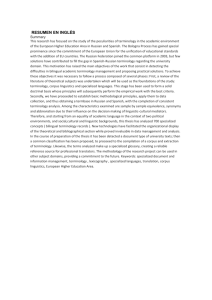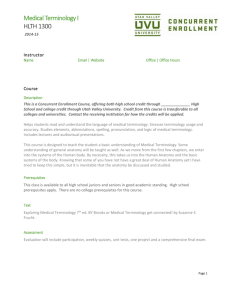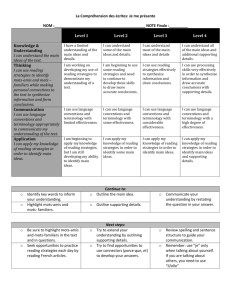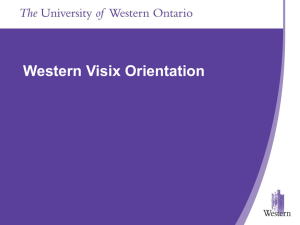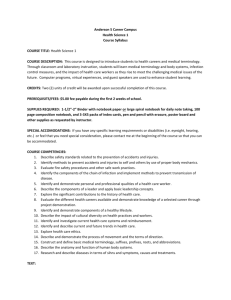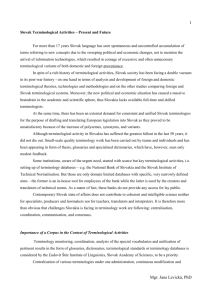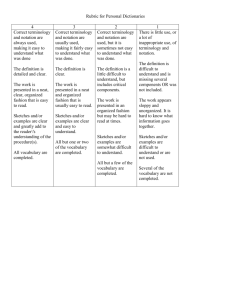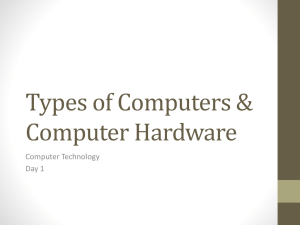Linguistic terminology and policy
advertisement
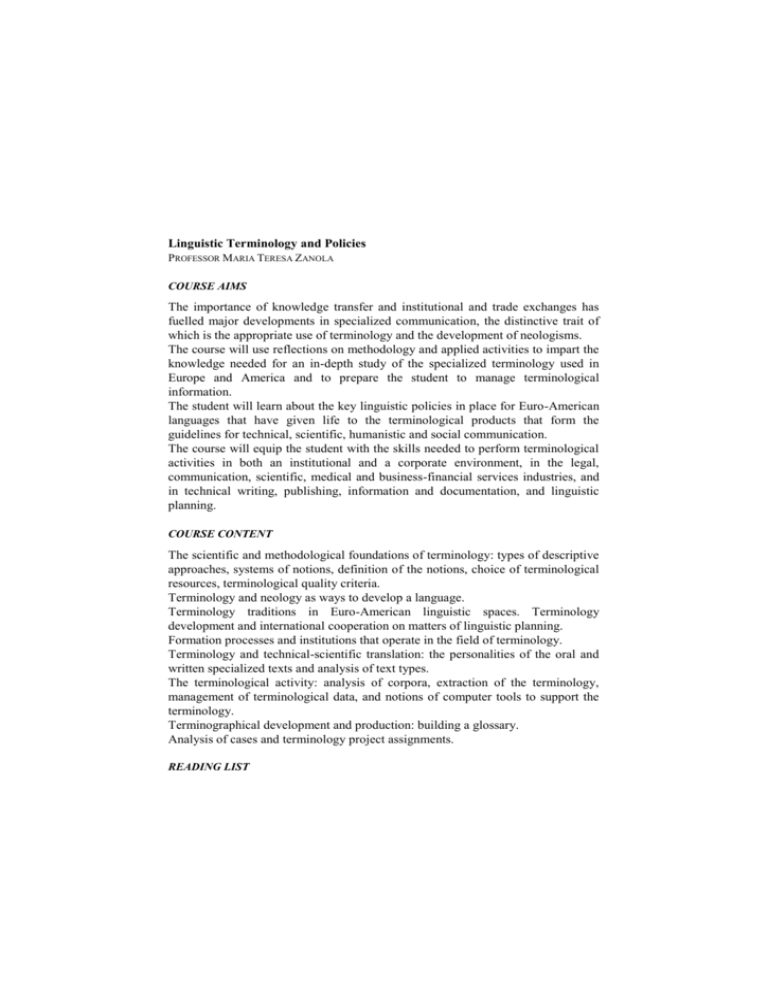
Linguistic Terminology and Policies PROFESSOR MARIA TERESA ZANOLA COURSE AIMS The importance of knowledge transfer and institutional and trade exchanges has fuelled major developments in specialized communication, the distinctive trait of which is the appropriate use of terminology and the development of neologisms. The course will use reflections on methodology and applied activities to impart the knowledge needed for an in-depth study of the specialized terminology used in Europe and America and to prepare the student to manage terminological information. The student will learn about the key linguistic policies in place for Euro-American languages that have given life to the terminological products that form the guidelines for technical, scientific, humanistic and social communication. The course will equip the student with the skills needed to perform terminological activities in both an institutional and a corporate environment, in the legal, communication, scientific, medical and business-financial services industries, and in technical writing, publishing, information and documentation, and linguistic planning. COURSE CONTENT The scientific and methodological foundations of terminology: types of descriptive approaches, systems of notions, definition of the notions, choice of terminological resources, terminological quality criteria. Terminology and neology as ways to develop a language. Terminology traditions in Euro-American linguistic spaces. Terminology development and international cooperation on matters of linguistic planning. Formation processes and institutions that operate in the field of terminology. Terminology and technical-scientific translation: the personalities of the oral and written specialized texts and analysis of text types. The terminological activity: analysis of corpora, extraction of the terminology, management of terminological data, and notions of computer tools to support the terminology. Terminographical development and production: building a glossary. Analysis of cases and terminology project assignments. READING LIST Compulsory G. ADAMO, La terminologia, in R. Guarasci (ed.), Dal documento all'informazione, Iter, Milan, 2008, pp. 227-247. ID., La terminologia per gli interpreti e traduttori, «Moderne Sprachen», 2000, 44 ,pp. 141-149. G. NENCIONI, Lessico tecnico e difesa della lingua, «Studi di lessicografia italiana», Accademia della Crusca, 1987, IX, pp. 5-20. M.T. ZANOLA (ed.), Terminologie specialistiche e tipologie testuali. Prospettive interlinguistiche, EDUCatt, Milan, 2007, e Terminologie specialistiche e prodotti terminologici, EDUcatt, Milan, 2011. EAD. (ed.), Costruire un glossario: la terminologia dei sistemi fotovoltaici, Vita e Pensiero, Milan, 2012. Choose two of the following M.T. CABRÉ, La terminología. Teoría, metodología, aplicaciones, Editorial Antárida/Empúries, Barcelona, 1993 (trad. fr.: La terminologie. Théorie, méthode et applications, Les Presses de l’Université d’Ottawa – A. Colin, Ottawa-Paris 1998). R. DUBUC, Manuel pratique de terminologie, Linguatech, Québec, 1992 (Englist translation: Terminology : A Practical Approach, Linguatech, Brossard-Québec 1997). J. SAGER, A Practical Course in Terminology Processing, Benjamins, Amsterdam, 1990. R. TEMMERMAN, Towards New Ways of Terminology Description. The Sociocognitive Approach, Benjamins, Amsterdam/Philadelphia, 2000. M.L. VILLA, L’inglese non basta, Mondadori, Milano, 2013. E. WÜSTER, Einführung in die Allgemeine Terminologielehre und terminologische Lexicographie, Romanistischer Verlag, Bonn 1991 [1975]. M.T. ZANOLA (ed.), Terminologie e ontologie. Definizioni e comunicazione fra norma e uso, EDUcatt, Milan, 2013. EAD., Arts et métiers au XVIIIe siècle. Essais de terminologie diachronique, L’Harmattan, Paris, 2014. Additional information on the reading and website list will be given in class. TEACHING METHOD Lectures, guided practical assignments, seminars in the classroom; projects and applied activities in the lab. ASSESSMENT METHOD Papers, terminology projects and practical assignments. Final oral exam. NOTES Further information can be found on the lecturer's webpage at http://docenti.unicatt.it/web/searchByName.do?language=ENG, or on the Faculty notice board.
